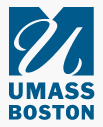Home > CIEE > Vol. 6 > Iss. 1 (2019-2020)
Abstract
The purpose of the study is to determine if, compared to traditional practice, digital practice increases student measuring accuracy on an authentic task. Therefore the study explores the relative efficacy of digital versus traditional practice for increasing student measurement skills in applied situations. Research tells us that students’ poor performance with measuring skills is directly related to lack of practice. To increase the ability to accurately use a ruler, Junior High, Intermediate and Middle Schools students require more time on task than they typically spend practicing this skill. Since more time is hard to come by in the classroom, educators make the most effective use of the time students do have to practice using a ruler. This raises a key research question: Can students who participate in digital practice transfer the skill to physically completing an authentic task? This study examines digital tools and their effectiveness in comparison to traditional measurement practice methods, finding no statistical difference in student performances or in students’ attitudes toward their own competency based on engagement in digital versus traditional practice with measurement. However, deeper research is warranted since results of this study may be context bound and since digital measurement practice may provide affordances beyond improved outcomes on authentic classroom measurement tasks and/or to foster increased student confidence.
Keywords
Measurement, rulers, digital, digital tools, educational games, gamification
Recommended Citation
Carpenter, Jeff
(2019)
"Digital Tools in the Classroom: Measuring the Effectiveness,"
Current Issues in Emerging eLearning: Vol. 6:
Iss.
1, Article 3.
Available at:
https://scholarworks.umb.edu/ciee/vol6/iss1/3
Included in
Educational Technology Commons, Instructional Media Design Commons, Junior High, Intermediate, Middle School Education and Teaching Commons
